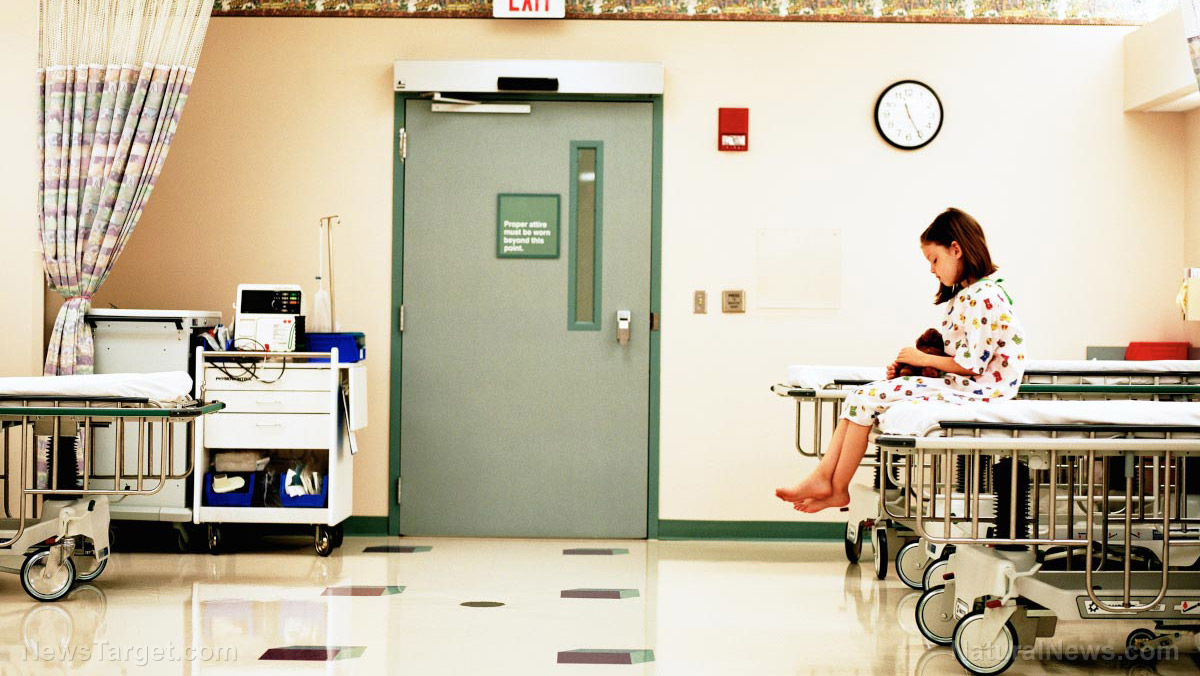Nurse: Holding patients hostage without visitors is medical kidnapping – Brighteon.TV (Bryan Ardis show)
09/05/2021 / By Nolan Barton

The Texas House Bill 2211 came into effect on Wednesday, Sept. 1, barring hospitals across the state from prohibiting in-person visitation with a patient “unless required by federal law or a federal agency during that period.”
However, one provision of the bill states that in-person visitation may not be allowed if the attending physician determines that visiting a particular patient may lead to the transmission of an infectious agent that poses a serious community health risk.
“For the record, we call patients being held hostage without visitors ‘medical kidnapping.’ And it’s not okay,” neonatal nurse practitioner Michelle Rowton told Dr. Bryan Ardis in “The Dr. Ardis Show” on Brighteon.TV. “They deserve visitors, they deserve an advocate – especially if you’re telling me they’re that sick. They should have an advocate there with them.”
Rowton was referring to patient advocates who help patients communicate with their healthcare providers to get the information they need to make decisions about their health care. Patient advocates may also help patients set up appointments for doctor visits and medical tests, and get financial, legal and social support.
Five days is a critical time in COVID-19 treatments at hospitals
A determination made by a patient’s physician to not allow a visitor is valid for up to five days – more if renewed. It didn’t bode well for Rowton.
“If I have a loved one in a hospital and you have an order saying that I can’t come in, I’m probably going to turn you in to the Texas Medical Board for emotionally abusing your patient.”
Ardis pointed out that five days is a critical time in the treatment of the Wuhan coronavirus (COVID-19) at hospitals.
The only approved treatment for the disease involved remdesivir, and it’s a five-day treatment protocol. Ardis said 8 to 31 percent of patients who received remdesivir have developed multiple organ failure and/or acute kidney failure.
“It’s disgusting. In my mind, somebody was saying ‘there’s a five-day window where we can drug them to death with remdesivir,'” Ardis said. “This thing is super dangerous. The government knew it and Anthony Fauci knew it before they mandated it as the only treatment protocol allowed in hospitals [against COVID-19].” (Related: Did Fauci knowingly fast-track approval of drug with deadly COVID-like side effects?)
Remdesivir is an antiviral medication that targets a range of viruses. It was originally developed over a decade ago to treat hepatitis C and a cold-like virus called respiratory syncytial virus (RSV). Remdesivir wasn’t an effective treatment for either disease, but it showed promise against other viruses.
It works by interrupting production of the virus. Coronaviruses have genomes made up of ribonucleic acid (RNA). Remdesivir interferes with one of the key enzymes the virus needs to replicate RNA, preventing the virus from multiplying.
Researchers began a randomized, controlled trial of the antiviral in February 2020 to test whether remdesivir could be used to treat SARS-CoV-2, the coronavirus that causes COVID-19.
By April, early results indicated that remdesivir accelerated recovery for hospitalized patients with severe COVID-19. It became the first drug to receive emergency use authorization from the Food and Drug Administration (FDA) to treat people hospitalized with COVID-19. Now, it is approved for use in adults and children at least 12 years old who weigh at least 88 pounds (40 kilograms).
WHO against the use of remdesivir in hospitalized patients
But in November last year, the World Health Organization (WHO) issued a conditional recommendation against the use of remdesivir in hospitalized patients, regardless of disease severity, as there was no evidence that the drug could improve survival and other outcomes in those patients.
The recommendation was part of a guideline on clinical care for COVID-19. It was developed by an international guideline development group that included 28 clinical care experts, four patient-partners and one ethicist.
The evidence the group had at the time suggested no important effect on mortality, need for mechanical ventilation, time to clinical improvement and other patient-important outcomes. The group recognized that more research was needed to provide higher certainty of evidence for specific groups of patients.
COVID-19 patients are being poisoned
Ardis also noted on his show that dexamethasone and vancomycin were added to remdesivir on the treatment protocol for COVID-19 patients.
“Each of those can cause kidney failure, as well as multiple organ failure – which they say is what’s causing the deaths of COVID-19 patients in hospitals,” Ardis said. “They’re dying because they’re being poisoned by those drugs.”
No vaccine, no problem
While it had not been highlighted on Ardis’ show, Rowton wasn’t fond of vaccine at all despite being a neonatal nurse practitioner for years. She has worked in the newborn intensive care unit (NICU) with premature and sick babies.
In her undergraduate training to prepare her to be a nurse, the only thing she was taught about vaccines was how to give the injections. When she was in graduate school studying for her master’s degree to become a neonatal nurse practitioner, she was taught “coercive rhetoric” to get the parents to agree with vaccines.
All of Rowton’s three children were unvaccinated and never been on antibiotics.
On his show next week, Ardis will talk about vaccines – specifically polio vaccines and their lifelong side effects. He will discuss the possible polio-like outbreak that the Centers for Disease Control and Prevention (CDC) has been announcing since last year. Watch “The Dr. Ardis Show” live on Brighteon.TV every Wednesday at 10-11 a.m.
Follow MedicalTyranny.com for more news related to bad practices in the medical profession. Also see this related podcast from Mike Adams:
Sources include:
Tagged Under: bad medicine, Big Pharma, community health risk, controlled trial, coronavirus, covid-19, emergency use authorization, FDA, genomes, harmful medicine, Hospitals, kidney failure, mechanical ventilation, medical fascism, Medical Kidnapping, Medical Tyranny, multiple organ failure, neonatal nurse, patient advocate, remdesivir, RNA, SARS-CoV-2, treatment protocol
RECENT NEWS & ARTICLES
COPYRIGHT © 2017 MEDICAL EXTREMISM





















